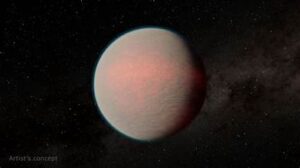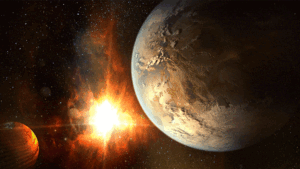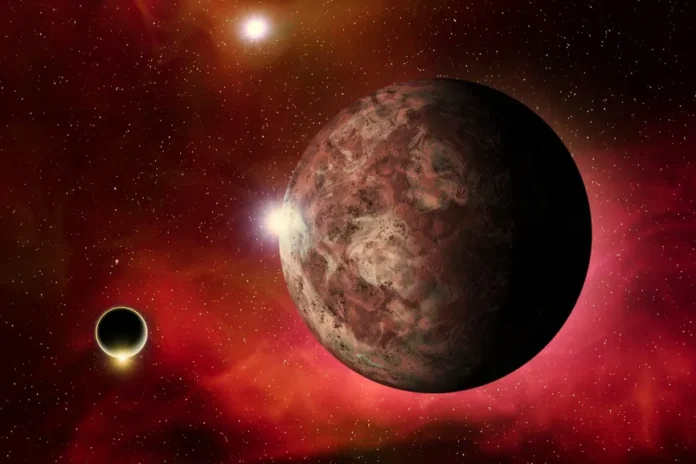In a groundbreaking development in the field of astronomy, artificial intelligence (AI) has discovered a potential habitable exoplanet in a nearby star system. This discovery marks a significant milestone in the search for extraterrestrial life and has profound implications for our understanding of the universe.
The Role of AI in Astronomy
Artificial intelligence has become an indispensable tool in modern astronomy. With the vast amount of data generated by telescopes and space missions, traditional methods of data analysis are often inadequate. AI, with its ability to process and analyze large datasets rapidly, offers a solution to this challenge. By employing machine learning algorithms, AI can identify patterns and anomalies that might be missed by human analysts.
In this particular discovery, AI was employed to analyze data from the Kepler Space Telescope. The AI system sifted through thousands of data points, identifying potential exoplanet candidates based on specific criteria such as orbital characteristics, size, and distance from their parent star.
Discovery of the Potential Habitable Exoplanet
The newly discovered exoplanet, designated Kepler-1649c, is located in the habitable zone of its parent star, a region where conditions might be right for liquid water to exist. This zone, often referred to as the “Goldilocks Zone,” is neither too hot nor too cold for life as we know it.
Kepler-1649c orbits a red dwarf star approximately 300 light-years away from Earth. Red dwarfs are known for their long lifespans and relatively stable conditions, making them ideal candidates for hosting habitable planets. Kepler-1649c is roughly Earth-sized, with a radius about 1.06 times that of our planet, and it receives about 75% of the light that Earth receives from the Sun, suggesting a potential for similar temperature conditions.
Implications for the Search for Extraterrestrial Life
The discovery of Kepler-1649c has significant implications for the search for extraterrestrial life. The presence of a potentially habitable exoplanet so close to Earth raises the possibility that life could exist elsewhere in the universe. While Kepler-1649c is not the first exoplanet discovered in the habitable zone, its Earth-like characteristics make it a prime candidate for further study.
Future missions, such as the James Webb Space Telescope (JWST), are expected to provide more detailed observations of Kepler-1649c. The JWST, with its advanced instruments, will be able to analyze the planet’s atmosphere, looking for signs of water, oxygen, and other markers of habitability.
The Importance of AI in Future Discoveries
This discovery underscores the critical role of AI in the future of astronomical research. As telescopes become more powerful and generate even larger datasets, AI will be essential in identifying and analyzing potential exoplanets. The ability of AI to process data quickly and accurately will accelerate the pace of discovery, bringing us closer to answering the age-old question of whether we are alone in the universe.
Moreover, AI’s applications are not limited to exoplanet discovery. It is being used in various other areas of astronomy, including the study of galaxies, black holes, and cosmic phenomena. The integration of AI in these areas promises to revolutionize our understanding of the cosmos.
Conclusion
The discovery of Kepler-1649c by AI marks a significant advancement in the search for habitable exoplanets. Located in the habitable zone of a nearby star system, Kepler-1649c’s Earth-like characteristics make it a prime candidate for further study. This discovery highlights the indispensable role of AI in modern astronomy and its potential to accelerate the pace of astronomical discoveries.
As we continue to explore the universe, the integration of AI will undoubtedly lead to more groundbreaking discoveries, bringing us closer to understanding our place in the cosmos. The potential for finding life beyond Earth has never been more promising, thanks to the power of artificial intelligence.





